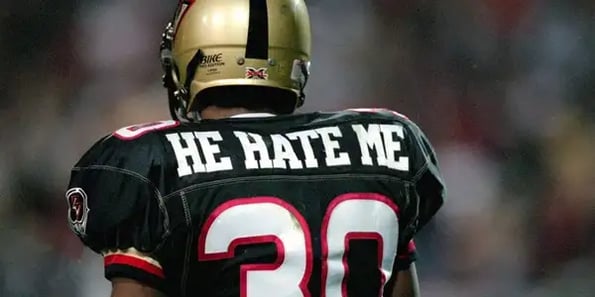For months now, rumors have swirled that wrestling tycoon Vince McMahon wants to bring back the notorious sports dumpster fire that was The Xtreme Football League.

Yesterday, suspicions were confirmed: According to McMahon himself, the XFL is back babyyy — it’s slated to debut in 2020, and McMahon’s touting it as “football reimagined.”
Hmm, didn’t go too well the last time around…
Billed as “smash-mouth” football back in 2001, the XFL was poised to be every barbed-wire-tatted, football-lovin’ bar brawler’s favorite thing on earth.
With classic tidbits like bikini-clad women sloshing around in hot tubs behind end zones, and players donning cool nicknames like “He Hate Me” and “Big Daddy” on the backs of their jerseys, could ya blame them?????
(Un)fortunately that’s not what happened. Despite putting up monster ratings out of the gate, and executing on their promised mix of sex, violence, and no holds-barred showmanship, the league swiftly failed.
At one point, one of their games was the lowest-rated prime-time show ever among the big three networks.
But… here we are
Say what you want about McMahon, he’s undeniably a businessman. And since it’s pretty terrible timing to bring in a more violent football league, he’s been outspoken about making the XFL as “safe as possible.”
He was light on details during the press conference but did manage to outline a few highlights:
- 10-game season
- Two-hour game times
- Players with criminal records banned from playing
- Players not allowed to take a personal stance on social issues on the playing field
Soo… just regular football?
